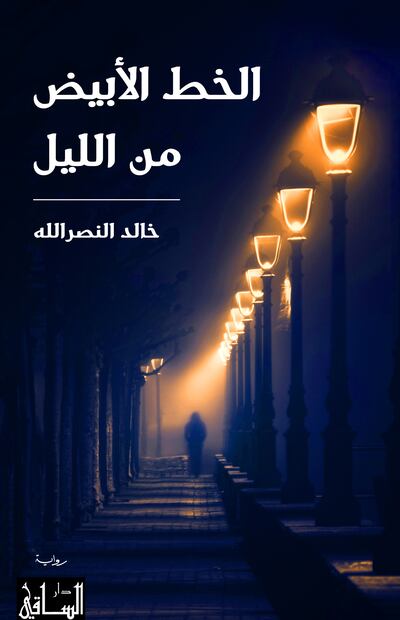In Khaled Nasrallah’s novel The White Line of Night, a bibliophile working as a copy editor in the Department of Published Works is forced to censor and ban books he admires. The moral dilemma he faces pushes him into the eye of a dystopian storm.
The White Line of Night was among the six works shortlisted for the 2022 International Prize for Arabic Fiction. While the novel is set in an unidentified Gulf country, its premise is a scathing criticism of the censorship book publishers face in Kuwait.
Nasrallah has a unique vantage point when it comes to this issue. In 2016, dozens of books published by Nova Plus, a publishing company co-founded by the author in 2011, were banned with nominal explanation. Nasrallah began writing The White Line of Night two years later, and based its protagonist on a friend who worked in Kuwait’s book censorship department and had a penchant for creative writing.

“The structure of the novel is fictitious, but there are some details that have a connection to reality, to general events and stories told to me personally,” Nasrallah tells The National. “My experience as a publisher definitely helped as well.
“The idea, however, came to me from a novelist friend who works in the censorship department, and his paradox created the events of the novel that took me nearly two years to write.”
Although The White Line of Night doesn’t explicitly refer to the country in which it takes place, Nasrallah uses the novel as a platform to challenge the contradictory laws enforced in his native country.
“It describes some distinctive things about the weird laws in my country, which on the one hand give the right to speak freely, allowing criticism of the state and politics, [yet] the authorities monitor books, Twitter and publications,” Nasrallah told Ipaf following the shortlist reveal. “This situation was an added inspiration and impetus for the novel.”
The White Line of Night is propelled by contradictions, not just of a bibliophile working in a censorship department. The novel is a front line between political polarities such as liberalism and conservatism, but it also explores the battleground between creativity and the forces that seek to stifle it.
“There is also another kind of conflict [in the novel] — the copy editor’s inner conflict. In his reality and imagination, in accepting and rejecting his job, in acquiescing to or resisting state institutions,” Nasrallah says. “As such, the story is driven by these small big conflicts, which begin with gentle winds and end with a devastating hurricane.”
But Nasrallah is hopeful for Kuwait’s literary future. He says despite the censorship, the country’s publishing scene is experiencing “its best days” and can improve further, if only “those concerned with cultural affairs in the government join forces with writers, publishers and bookstore owners”.
He continues: “As for the difficulties, they are faced by any Arab intellectual. The most important of which, in my opinion, is devotion to creative practice.”
Born in Kuwait in 1987, Nasrallah made an early fiery entrance on to the local literary scene. He was only 20 when he self-published his debut work, a book of essays titled A Kuwaiti from Another Planet.
Since then, he has published five books including the novels Pigeon in 2013 and The Highest Depth, which was shortlisted for the Sheikh Zayed Book Award in the Young Author category in 2017.
“I consider The White Line of Night to be my fourth novel,” he says.
Nasrallah is currently working on a fictional biography of a literary figure whose life is intertwined with major political events in the region from the 1940s to the mid-2010s.
“I’m already a few chapters in,” he says. “I hope it earns the fascination and interest of Arab readers.”

